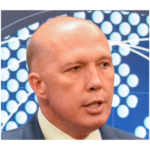Motion Passed to End Sniffer Dog Operations and Introduce Pill Testing

Last Wednesday, an Australian Greens motion passed before the federal Senate calling on the Turnbull government to introduce a range of harm minimisation policies. These include the introduction of pill testing trials at this year’s upcoming festival season and the removal of drug sniffer dogs at such events. The motion passed without any objection from Liberal or Labor Senators.
“I’m pleased the Senate has agreed that the federal government should act,” said Australian Greens leader Richard Di Natale, a former drug and alcohol clinician. “Now it’s time for Liberal and Labor governments to back these measures in every state and territory.”
Proposed harm minimisation policies
The motion calls for a range of other evidence-based harm reduction initiatives, such as greater access to needle syringe programs – including a rollout into prisons – more medically supervised injecting rooms and promoting awareness that Naxloxone, a drug that reverses opioid overdoses, is now available over-the-counter.
State government reactions to pill testing
But as Di Natale mentioned, these measures require the cooperation of state and territory governments and, in the case of pill testing trials, a few of them have been less than enthusiastic.
In February, NSW premier Mike Baird labelled a pill testing proposal as “ridiculous” and likened it to condoning “what illegal drug dealers do.” And in June, Tasmanian police minister Rene Hidding ruled out the introduction of pill testing at festivals in his state, even though it has the backing of the Police Association of Tasmania.
The case for pill testing
Several of the nation’s leading drug law reform advocates announced plans earlier this year to introduce a privately-funded pill testing trial at festivals in NSW. This was in response to the six deaths attributed to drug overdose at festivals around the state over the twelve-month period beginning November 2014.
The use of ecstasy is popular in Australia. According to UNODC data, per capita Australian adults lead the world in the drug’s use. But in the Netherlands, where party drugs are an integral part of the nightlife culture, similar stories are less common.
This is because European nations like the Netherlands, Switzerland, Austria and Germany have had official pill testing services for decades. Indeed, the European Union has actually produced pill testing best practice guidelines.
Pill testing services can detect whether a tablet has been cut with other illicit drugs or harmful substances. A pill thought to contain MDMA, might be made up of another psychoactive substance like PMA, which is similar in effect but much more dangerous. And with the surge in purity of MDMA over recent years, a service can also check for dosage levels.
In this way, the service provides the user with information about the contents of their drugs, leaving them to make an informed decision about whether to take them.
Testing in Canberra
Director of harm reduction group Unharm, Will Tregoning, has been leading the campaign for pill testing trials, along with Dr Alex Wodak, president of the Australian Drug Law Reform Foundation and Canberra emergency physician Dr David Caldicott.
Tregoning told Sydney Criminal Lawyers® that pill testing is already happening legally using reagent testing kits. However, “governments are still preventing much more accurate services run by trained counsellors,” he said. “It still makes no sense. There’s a lot of pressure building on this issue.”
Last week, Tregoning suggested to Triple J’s Hack that pill testing could take place during the coming festival season in the ACT at either Spilt Milk or Groovin the Moo. The ACT is a better alternative to NSW, where the perception of pill testing is very negative and the ACT Greens have also pledged support to the idea of pill testing at festivals in Canberra.
Civil disobedience
As this trial would not be endorsed by the government, it would be an act of civil disobedience. In the past, breaking the law has been a successful route when initiating much needed harm reduction programs in Australia.
In 1986, an illegal pilot needle syringe program in Kings Cross led to the NSW government establishing needle syringe programs throughout the state. And in early 1999, an injecting room set up at the Wayside Chapel in Kings Cross led the push for the establishment of the nation’s first sanctioned medically supervised injecting facility.
According to Tregoning, the proposals made in the Greens’ harm reduction motion are well supported by evidence. “As a whole it symbolises the Greens’ commitment to a medicalised, reformist, service-oriented drug policy platform,” he said. But on drug detection dog operations he believes they “will only end under sustained political pressure.”
The results of sniffer dog operations
The use of sniffer dogs has long been criticised by harm reduction advocates like Tregoning. Their presence at festivals is said to lead to dangerous drug taking practices that can cause overdose.
Preloading, or loading up, is when a person takes all of their drugs before arriving at an event in order to avoid detection. The hiding of drugs in body cavities, in packaging such as condoms, is another common practice.
Mr Tregoning points to the death of James Munro at Defqon 1 in 2013 as a case of panic overdosing. Munro is said to have taken all his drugs at once when he saw the sniffer dog operation at the festival.
NSW Greens MLC David Shoebridge has long been a campaigner against the use of drug detection dogs. Figures he obtained from the NSW police minister suggest that in of the 14,593 searches undertaken in 2014 by police following a positive indication by a dog, 10,763 found no illicit drugs. That’s a 74 percent false positive rate.
The NSW Greens’ Sniff Off campaign is run out of Mr Shoebridge’s office. An initiative to end the use of sniffer dogs in public places, the campaign runs a Facebook page that allows members of the community to warn others about the whereabouts of sniffer dogs.
Both the Greens’ Senate motion and the National Drug Summit, held in Canberra on March 2 this year, demonstrate there’s recognition of the need for harm reduction methods at the highest level.
But it’s left to be seen whether conservative state politicians have the gumption to initiate these evidence-based policies on the ground.







